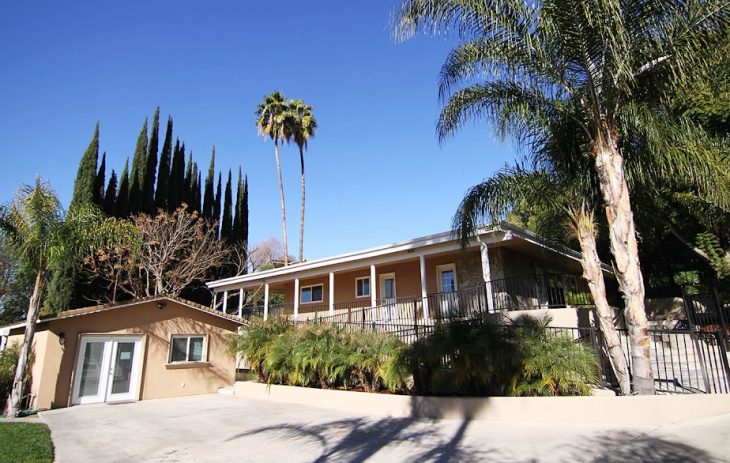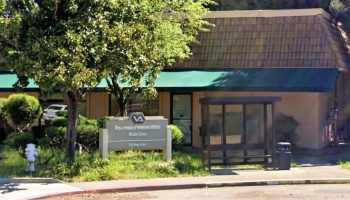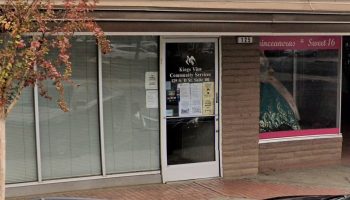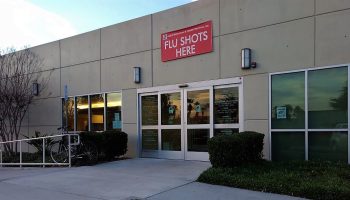About New Creation Treatment Prado House
New Creation Recovery in Colton, California provides addiction treatment services to adult clients including LGBTQ+ folks, veterans, and active-duty military personnel as well as survivors of sexual and domestic abuse. Individuals with concurrent mental health conditions are also accommodated. Private and military insurance plans are accepted including TRICARE and Medicaid.
Medical Detox and Residential Drug Rehab Services in San Bernardino County
Begin your recovery journey with medically supervised detox. The team can support you in withdrawing from various substances including alcohol, opioids, benzodiazepines, cocaine and methamphetamines. They also use medication-assisted treatment (MAT), with options like buprenorphine and naltrexone to ease cravings and other uncomfortable withdrawal symptoms.
Residential inpatient treatment is also available featuring comprehensive care and 24/7 monitoring. Facilities are gender-separated and designed to feel homely and comfortable. Residents can enjoy on-site gym areas as well as organized outdoor activities, meditation spaces, and tailored diet plans as part of holistic care.
Outpatient Addiction Treatment in ‘Hub City’
Flexible outpatient support is also available here in this peaceful Southern California setting. Various programs are available including partial hospitalization (PHP), intensive outpatient (IOP), and regular outpatient. PHP provides the most intensive support after inpatient, offering structured rehabilitation without 24-hour care.
Meanwhile, IOP is a step down featuring structured therapy sessions at various points throughout the week. Mental health care is integrated into treatment in all these programs.
Aftercare and alumni support are also provided, including recovery coaching, social support, and mentorship to maintain sobriety post-treatment. You can also access sober living arrangements should you need extra support while transitioning back to day-to-day life post-recovery.
Levels of Care
-
Inpatient
Inpatient and residential programs provide round-the-clock medical and emotional support as you live at the treatment facility. This level of care may be recommended if you have severe addictions or mental health conditions since it removes outside distractions and allows you to focus solely on therapy.
-
Outpatient
In outpatient therapy, you’ll attend therapy sessions several times each week while living at home. This is ideal if you have a strong support system and a lower risk of relapse. Outpatient treatment offers flexibility to maintain work, school or family obligations.
-
Aftercare
Aftercare programs provide ongoing support after you complete a rehab program. They may include several components to help you maintain sobriety including therapy, community support groups and relapse prevention strategies. This gives you a network of resources as you reintegrate into your daily life.
-
Dual Diagnosis
Dual diagnosis programs address substance use disorders and co-occurring mental health conditions simultaneously. This integrated approach to care improves the likelihood of long term recovery and stability by addressing the root causes of addiction.
-
Intervention
An intervention is a structured and professionally guided conversation with an individual who is struggling with addiction. During the conversation, family and friends will encourage you to seek treatment. This is often a pivotal step for those resistant to getting help.
-
Sober Living
Sober living homes provide a supportive and substance free environment for you to live in as you overcome your addiction. Residents must follow house rules and support each other's recovery journeys. Sober living fosters accountability and stability during this critical phase of recovery.
Detox Service Setting
-
Inpatient Detox
Inpatient detox occurs in a dedicated treatment facility. You’ll live there around the clock and receive intensive medical support and supervision to help manage your withdrawal symptoms. It is suitable for individuals with moderate to severe addictions as it ensures a stable detox environment.
-
Outpatient Detox
Outpatient detox gives you access to medically supervised withdrawal services while still allowing you to live at home. You’ll attend a clinic for treatment and monitoring. This flexible option is suitable for those with mild to moderate withdrawal symptoms who have strong support systems.
Programs
-
Adult (18+)
Adult programs address the substance use and life challenges specific to adults. Therapists can deliver sessions in individual, group and family settings. Services often include job support and life skills training in a structured environment.
-
Alcohol Detox
Alcohol detox programs offer medical support to help individuals withdraw safely from alcohol. Your care team may use medications to ease your symptoms and provide medical monitoring to address complications.
-
Cognitive Behavioral Therapy
Cognitive behavioral therapy focuses on changing harmful thought patterns and behaviors associated with addiction. You’ll learn healthier coping mechanisms by identifying and replacing negative thoughts. This improves your emotional resilience and decreases your relapse potential.
-
EMDR Therapy
EMDR stands for eye movement desensitization and reprocessing therapy. It helps you process traumatic memories that may underlie addiction. You’ll learn how to reduce emotional distress and begin healing from past events. This makes it effective for trauma related addiction causes.
-
Exercise Therapy
Exercise therapy incorporates physical activity into treatment to promote mental and physical health. Regular exercise reduces stress, boosts mood and enhances your overall wellbeing. This can give you a positive outlook and lower your relapse risk.
-
Opioid Detox
Opioid detox uses medications to ease severe withdrawal symptoms. It also includes medical supervision to help you manage potential complications. These services allow you to stabilize and begin a recovery plan.
-
Seniors (65+)
Senior programs address the unique needs of older adults like chronic pain, grief and isolation. Programs include peer support and medical oversight for age related health concerns. The goal is to improve quality of life and promote sober aging.
-
Women
Women's programs offer a safe and supportive space to focus on gender specific issues such as trauma, family roles and mental health conditions. Therapists tailor the sessions to address women's needs and foster empowerment in a healing and nurturing environment.
-
Young Adult (18 - 25)
Young adult programs are designed for individuals who are transitioning into adulthood. Topics of discussion typically include identity, independence and peer relationships. Providers may also offer life skills training and career support.
Accreditations
-
 Joint Commission
Joint Commission
Amenities
- Fitness Center
- Hiking
- Yoga Studio
Contact
23950 Prado Lane
Colton, CA 92324





